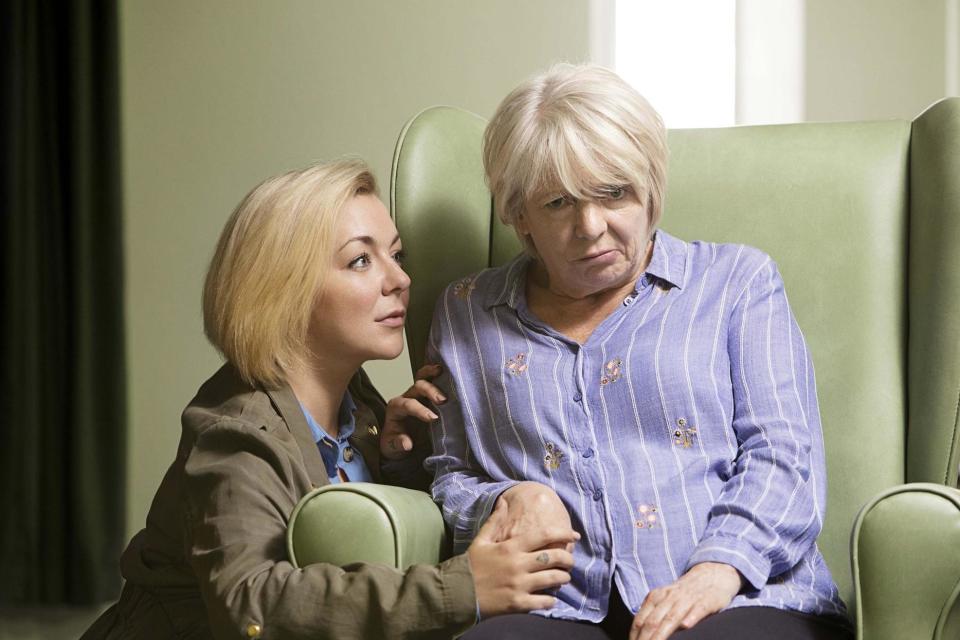Care review: Sheridan Smith's dementia drama on BBC1 makes for difficult viewing
Are you suffering from an excess of sprightliness and festive cheer? This ought to help: Care (BBC1), a 90-minute drama about dementia. If that wasn’t unpromising enough in the banter stakes, it comes from that Merseyside Michelangelo of misery Jimmy McGovern, who has co-written the story with newcomer Gilian Juckes, based on Juckes’s own experiences.
To complete the all-star Liverpool lineup, they have recruited Sheridan Smith and Alison Steadman. Smith plays Jenny, a single mother of two, whose own mother, Mary (Steadman) suffers a crippling stroke. Although she survives, she is left badly brain damaged, and unable to communicate her thoughts. For the most part, Care is an agonising trip through this most horrendous of experiences, the television equivalent of a long walk through a car park in driving rain.
Inevitably with McGovern’s work, the key trauma takes place not in isolation but within a whole infrastructure of grinding difficulty. Jenny’s useless ex-husband contributes nothing to the upbringing of their children. The care home she finds for Mary has been worn down by underfunding and can barely provide basic attention to its patients. Her sister Claire (Sinead Keenan) is not much use either.
With little money or assistance, Jenny’s difficulties pile up. Everyone wants the best, but there simply aren’t enough hands on deck. The action proceeds with a kind of grinding inevitability, aside from the odd clunker in the dialogue: “Oh s***, I’ve been drinking,” Jenny said to herself before leaving the house when Mary went missing from the home, in a way that nobody would ever say to themselves.
Smith has recently been in the papers more for her turbulent personal life, so it is gratifying to see her back to what she does best. She has a rare gift and can conjure more sympathy in a single glance or exasperated sentence than fewer actors manage in a whole career. She could make you root for Myra Hindley.
Few conditions are bleaker than dementia, especially when it is brought on so suddenly. Mary is lost as a mother instantly, as clearly as if she had died, yet there is the double burden of gaining, in effect, another child, truculent and frightened and inarticulate.
As well as the impact on the sufferers and their loved ones, there is the corrosive effect the condition is exerting on the whole country’s healthcare resources. If there is a price to be paid for everyone living longer, this is where it seems most apparent.
The programme’s only directorial flourish is the words that appear next to Mary as she tries to communicate. Her intended words are childlike – the brain damage has not merely affected her speech – but they are at least clear. It gives a novelistic sense of interiority to Steadman’s portrayal, and we feel the frustrations of all sides keenly. An upbeat ending comes only as the mildest of reliefs. The overall message, that we are nothing without communication, might be vital, but that doesn’t make it easy to watch.


